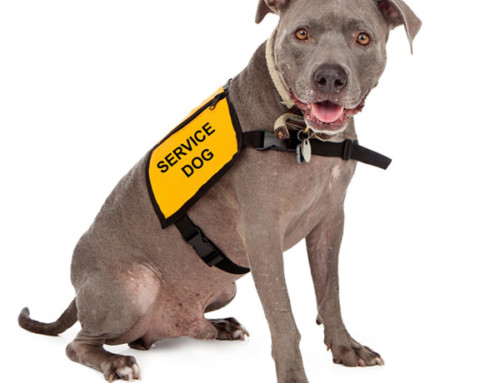If you’re like most pet owners, you spend plenty of money on your pet or pets every year. In 2014, Americans spent close to $60 billion on pet products and services. We spend that much because we see our pets as family members. In truth, pets are more dependent on us for their health and welfare than our human children who grow up and learn to care for themselves.
Unfortunately, the IRS doesn’t see pets with the same eyes you do. You can’t claim the standard deduction for dependents for your pets. There are, however, certain pet-related expenses you can claim in special circumstances.
Guide and Service Animals
If you have a service animal that performs an activity for you that you are deemed medically unable to do on your own, you may be able to write off the expenses associated with keeping that s2ervice animal healthy and well fed. Seeing-Eye dogs are the prime example.
Guard Dogs
A dog you have for personal protection can provide a tax break for its expenses, but the IRS will take a dim view if you try to claim your Shih-Tzu as a guard dog, no matter how ferociously she defends you. If you own a Rottweiler, Belgian Malinois, German Shepherd or other typical guard-dog breed, you have a better chance of convincing the IRS.
Your Pets As Your Business
If you use your pets to make money, even if you don’t make a profit, you may be able to deduct some of their expenses. In cases like this, as with a guard dog, you have to demonstrate for the IRS that your pets are basically your employees, and you have to keep records of their “work hours” and only take deductions related to those hours. If you make videos of your pets to advertise products or services you sell, for instance, you have the basis for some of the documentation you’ll need.
Pet-Related Charitable Donations
When you’re involved with a local pet shelter or rescue organization, and take in foster pets, you can write off the expenses related to the animals you care for as long as they live with you. Along with receipts for food and other supplies, you’ll need written confirmation from the shelter or rescue that you provide temporary homes for pets and bear all their expenses during that time.
Moving With Your Pet
Perhaps the easiest tax write-off for pet owners is related to moving expenses. If your work requires you to move more than 50 miles from your current location, and you qualify for the moving expense deduction, you should be able to add the cost of shipping your pets.
All of these possible tax breaks take a lot more work than a standard deduction for a dependent, and you need to have enough other deductions to itemize them before you get to the pet-related expenses. As with any other deductions you claim, you have to back everything up with receipts and other documentation.
If your Shih-Tzu is a top doggie fashion model and you have to drive her to the studio for her close-ups, you can deduct your mileage. You have to have those records to present to the IRS when they ask.
Your best bet if you think you qualify for any of these deductions is to talk to your tax accountant. Your accountant can point out which types of deductions are more likely to work legally and which are more likely to land you in hot water. You won’t want to go to jail and leave your pets with no one to care for them.


















Leave A Comment